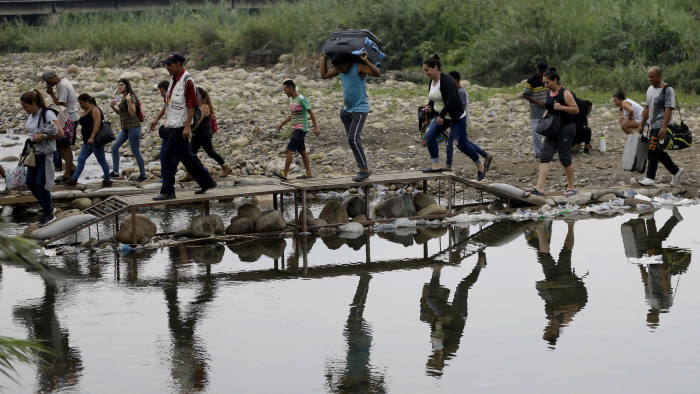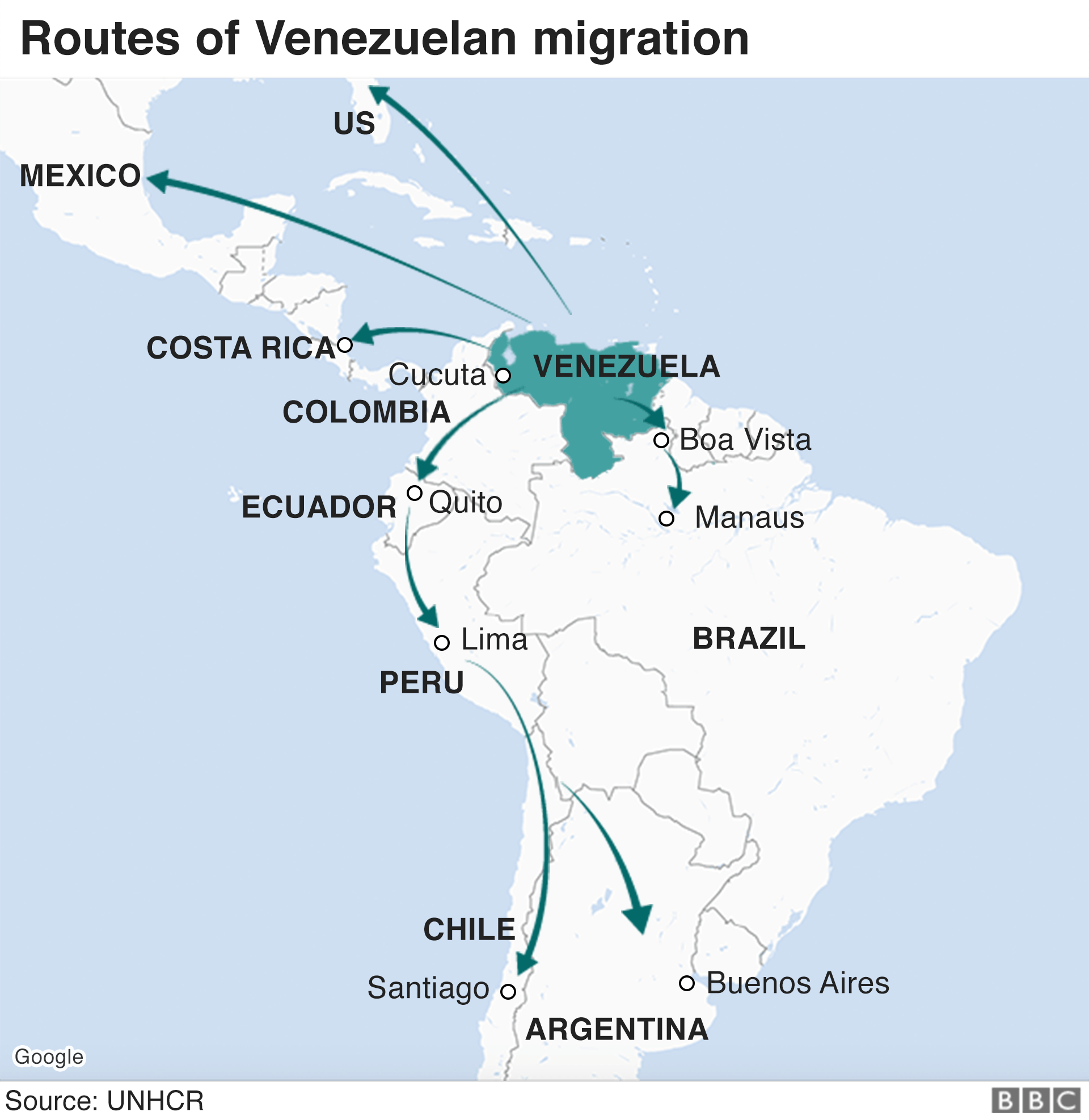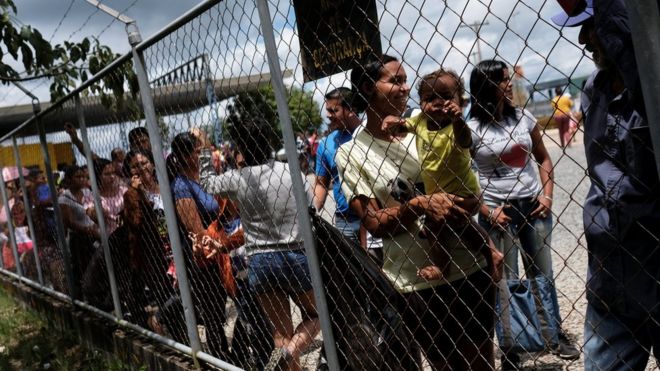Transposing a Population
"It creates a big vacuum in Venezuela. If this situation is prolonged it will be even more difficult to think about the reset of Venezuela."
"It will for sure change the profile of Latin America, this movement of people. We are speaking about six million people."
"It will have an impact no doubt on the future of Venezuela proper and in the receiving countries."
"These countries seem to be willing to integrate Venezuelans, but they cannot do it alone."
Renata Dubini, U.S. director, United Nations High Commissioner for Refugees
"It's the largest human migration in the history of this hemisphere since the arrival of Europeans."
"For fifty years it was Colombia that was the unstable country with extraordinary levels of violence and organized crime activity. And Colombians were voting with their feet as well and they established themselves in all kinds of Latin American countries."
"The Venezuelans of 2019 are starting to occupy the role that Colombians have played for so many years. I suspect that Venezuelan communities are going to become relatively permanent fixtures of so many other Latin American countries over the generations to come."
"I'm painting a rather bleak notion of Venezuela being the new Haiti. Over the years and years to come, decades to come, there's going to be a requirement for a very significant economic and humanitarian support."
Ben Rowswell, former Canadian ambassador to Venezuela
"When you have four and a half million people leaving a country, you get a brain drain, you get a deterioration in basic services because medical staff, teaching staff, businesspeople leave."
"It contributes to the degradation of that society."
Dr. Hugo Slim, head, policy and human diplomacy, International Committee of the Red Cross, Geneva
 |
| Venezuelans cross the border into Colombia. More than 1m of the 4m estimated to have fled the Maduro regime have ended up in Colombia © AP |
The tragic dissolution of a country. The world saw it happening in slow motion in Zimbabwe, and it is repeating itself in Venezuela. The outflow of over four and a half million Venezuelans, choosing refuge outside their own country, driven by violence, crime, corruption, medical emergencies, food shortages, unemployment, financial crisis, sees the collapse of a country well endowed with natural resources, that was once one of the wealthiest nations in Latin America. The social revolution that Hugo Chavez brought to the country began its long slide into insolvency and irreparable disarray.
Before his death, however, it might have been difficult to foresee just how rapidly the disintegration of the country would proceed under the stewardship of his chosen successor, a man as qualified, as a bus driver, to lead the country, as Chavez was, a former low-level military man. Had Nicolas Maduro remained a bus driver the country would unquestionably have been far better off than the wreckage the world looks in on today. According to new estimates released by the United Nations, by the end of 2020, the number of Venezuelan refugees could top 6 million.
And though the country itself is groaning under the sheet weight of its incompetent, corrupt ruling body, its neighbours are straining mightily to honour their duty to give haven to the oppressed and the indigent. Venezuela's neighbours are taking up the slack of millions of Venezuelan lives left in the limbo of statelessness and concern for the future. The entire continent is in the grip of change in their political and social order, and must cope as well with the overflow of Venezuelan refugees.
- Mass protests have rocked Chile, forcing it to cancel major international summits;
- Bolivia has undergone a contested election that has seen its first and perhaps only Indigenous president, Evo Morales sent into exile in Mexico;
- Argentina has once again elected a left-leaning government;
- Brazil is governed by a controversial populist.
Venezuela's economy continues to flounder, the health and education systems have seen a major collapse in the once oil-rich state with hyperinflation and food and medicine shortages persuading Venezuela's educated elite, its professionals, to look elsewhere for their future, alongside those for whom poverty has been a lifelong affliction. Even Venezuelans who decamp their country to hope for haven and opportunity elsewhere have no illusions that their country of birth will ever recover from its current crisis; it is too far gone, and they harbour no aspirations to return.

Peru's foreign ministry took a survey recently of new arrivals, to discover that 90 percent claimed they had no wish to return to Venezuela. Peru now hosts 861,000 Venezuelan refugees, a number that is expected to grow to an estimated 978,00 by the closing of 2020. Colombia has absorbed 1.4 million Venezuelans, in the anticipation that even that number will inevitably increase by another million by the end of 2020.
Many Venezuelan refugees represent an elite, educationally qualified as professionals in the field of medicine and engineering. Canada has requested of the World Bank that Colombia, Peru and Ecuador be granted new and stable economic assistance to help them cope with the infusion of refugees; loans that would have no-payment grace periods of several years' duration to provide long-term support to enable Colombia and Peru to pay for education and health care for their new residents.
 |
| Latin American countries host the vast majority of Venezuelan migrants and refugees Reuters |
Labels: Crisis Management, Economic Collapse, Refugees, Social Dysfunction, Venezuela

<< Home